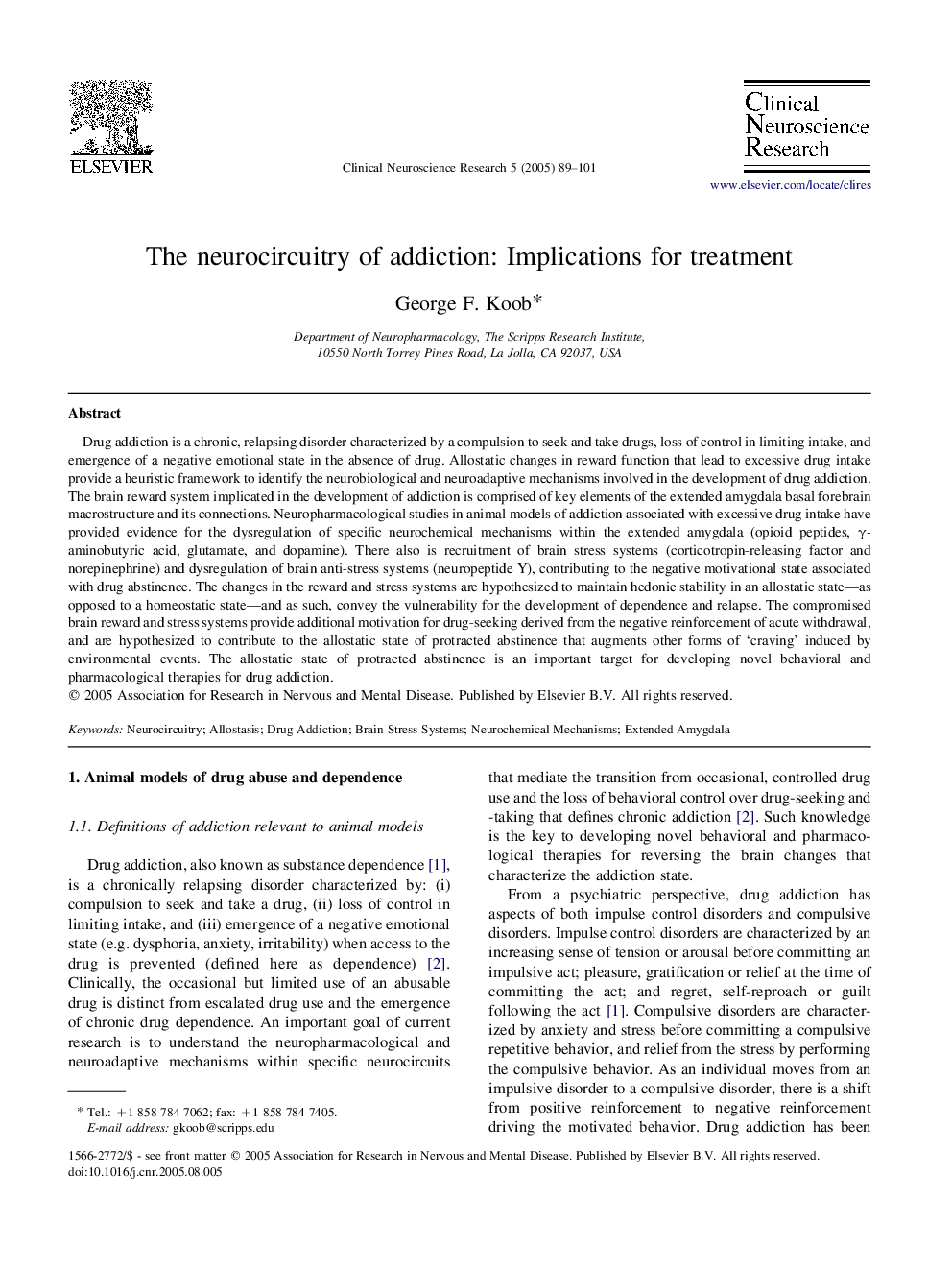| Article ID | Journal | Published Year | Pages | File Type |
|---|---|---|---|---|
| 9189885 | Clinical Neuroscience Research | 2005 | 13 Pages |
Abstract
Drug addiction is a chronic, relapsing disorder characterized by a compulsion to seek and take drugs, loss of control in limiting intake, and emergence of a negative emotional state in the absence of drug. Allostatic changes in reward function that lead to excessive drug intake provide a heuristic framework to identify the neurobiological and neuroadaptive mechanisms involved in the development of drug addiction. The brain reward system implicated in the development of addiction is comprised of key elements of the extended amygdala basal forebrain macrostructure and its connections. Neuropharmacological studies in animal models of addiction associated with excessive drug intake have provided evidence for the dysregulation of specific neurochemical mechanisms within the extended amygdala (opioid peptides, γ-aminobutyric acid, glutamate, and dopamine). There also is recruitment of brain stress systems (corticotropin-releasing factor and norepinephrine) and dysregulation of brain anti-stress systems (neuropeptide Y), contributing to the negative motivational state associated with drug abstinence. The changes in the reward and stress systems are hypothesized to maintain hedonic stability in an allostatic state-as opposed to a homeostatic state-and as such, convey the vulnerability for the development of dependence and relapse. The compromised brain reward and stress systems provide additional motivation for drug-seeking derived from the negative reinforcement of acute withdrawal, and are hypothesized to contribute to the allostatic state of protracted abstinence that augments other forms of 'craving' induced by environmental events. The allostatic state of protracted abstinence is an important target for developing novel behavioral and pharmacological therapies for drug addiction.
Related Topics
Health Sciences
Medicine and Dentistry
Clinical Neurology
Authors
George F. Koob,
